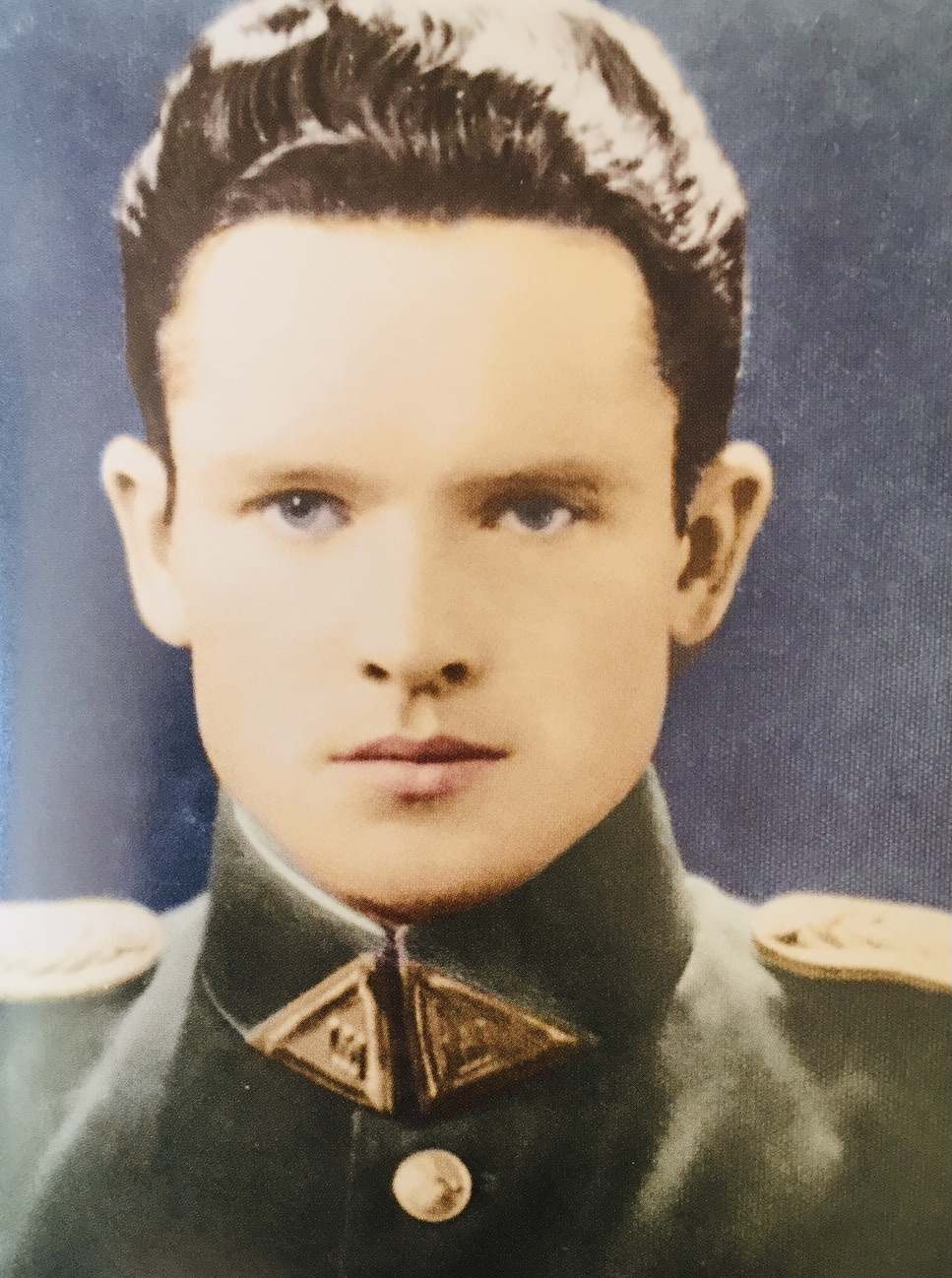As she lay dying in Chicago in 2ooo, Dalia Maria Kucenas, a rag doll of her former self, implored her daughter, Silvia Foti, to finish one last task she had begun.
“You have to write the book,” she said shortly before succumbing to cancer at the age of 60.
Kucenas, the recipient of a PhD in literature from the University of Illinois, had been working on a book about her late father, Jonas Noreika. A Lithuanian national hero known as General Storm, he was executed by the Soviet Union in 1947.
“The book had been everything to her, a lifelong passion,” Foti writes in The Nazi’s Granddaughter: How I Discovered My Grandfather Was A War Criminal, published by Regnery History. “Obedient daughter that I was, I nodded almost imperceptibly,” she adds. “And, almost imperceptibly, she acknowledged my promise.”
Although she had been taught to adore him, she knew virtually nothing about Noreika, a Hollywood handsome man born in 1910. “It was my mother who had known him … Everything was secondhand to me, merely stories I’d been told of how he died a martyr in a KGB prison for leading a rebellion against the Communists. He had died fourteen years before I was born. Who exactly had my grandfather been?”
And herein lies the nub of Foti’s revealing, courageous and morally complex memoir.
At the outset, Foti, a professional journalist, expected to write a glowing account of her famous grandfather, a lawyer, army officer and partisan leader “Growing up in Chicago’s Marquette Park neighborhood, which boasted the largest population of Lithuanians outside the homeland, I had heard how at the age of thirty six (he) had died at the hands of the KGB, a martyr for Lithuania’s freedom.” Noreika had also fought the Nazis and had been sent to a concentration camp in Germany, Foti’s family told her.
“I felt like a princess growing up as the granddaughter of a hero … I basked in the warm affection and approval of everyone in Chicago’s Lithuanian community … I was heir to Jonas Noreika’s illustrious legacy.” In short, she had learned “to love him the way a daughter loved a father,” and she “wanted to be just like him.”
Adding lustre to his heroic image was a book, General Storm, written by one of his colleagues and published in 1997 by the Genocide and Resistance Research Center in Lithuania. Its Museum of Genocide Victims, which she had visited, linked the mass murder of Jews during the Holocaust with the suffering of Lithuanian nationalists during the Soviet occupation of Lithuania.
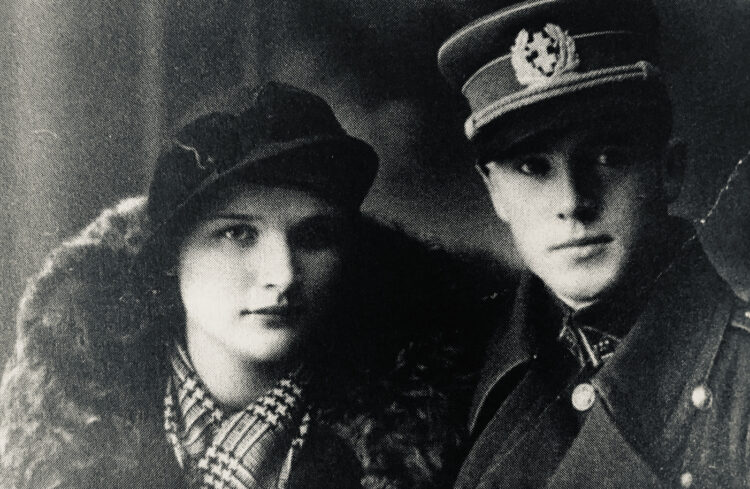
Kucenas and her mother, Antanina, both from the city of Kaunas, fled Lithuania in the wake of World War II and settled in Chicago in 1956. Four years later, Kucenas got married. She gave birth to Foti in 1961 and her brother, Ray, in 1964.
Raised in an intensely nationalistic milieu, they studied at a Lithuanian school, attended Lithuanian community events, and lived in the shadow of Noreika’s memory.
Visiting a school in Lithuania named after him, she and Ray were informed by its principal that their illustrious grandfather had been accused of being a “Jew-killer.” He was aghast. She was at a loss for words.
The principal minimized the accusation as mere Communist propaganda, but Foti was upset. “Why would he say such a thing? My mother and grandmother had never mentioned any such accusation. Nor had anyone else I knew. My legendary grandfather was part of my identity, my DNA. I felt a shame at hearing him accused of being a Jew-killer, shame I didn’t want to face.”
Lithuanians in Marquette Park dismissed the accusation as a ploy to wound Lithuania’s national pride. “So I equivocated. I delayed investigating the rumor about Jewish deaths. Instead I decided to wade through the mountain of information left to me by my mother. During my spare time, I attempted to record the memories and impressions of my grandfather passed down to me by various family members.”
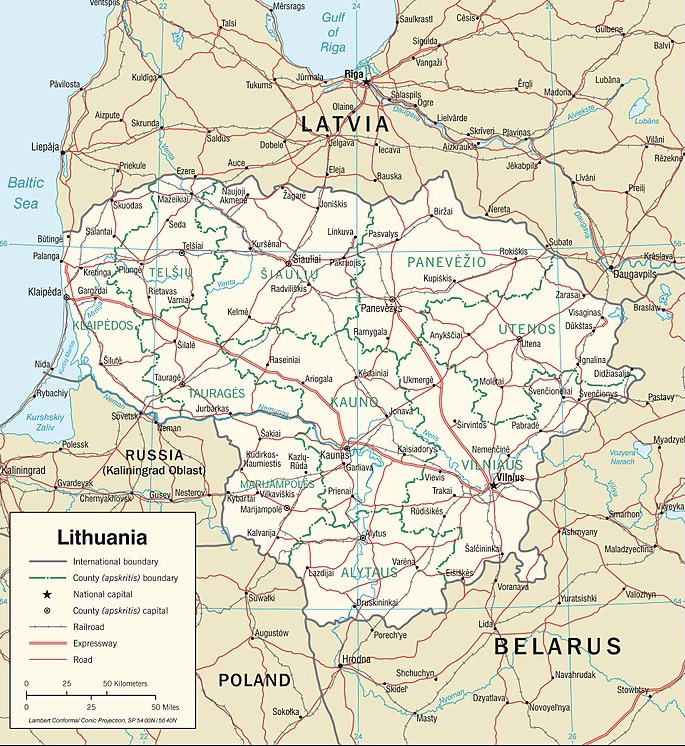
As she delved deeper into his biography, she learned he had been jailed in the Stutthof concentration camp in 1943 for inciting Lithuanians not to join the Nazi SS organization. “Struggling to be an objective journalist, I asked myself: How could he be a Jew- killer if he had been in a Nazi concentration camp? Didn’t that alone prove his innocence?”
Noreika was arrested by the KGB on March 16, 1946, ten days after Winston Churchill’s Iron Curtain speech. He was charged with having collaborated with the Germans and with having led a rebellion against Soviet rule in Lithuania, which had been an independent nation until its conquest by the Red Army in 1940.
“But nothing in the KGB transcripts indicated, or even suggested, he had been responsible for the murder of Jews. Nevertheless, I couldn’t help but note that the KGB had never questioned Noreika directly about his possible involvement in the Holocaust. They were concerned only with his anti-Soviet activity, and specifically with his efforts to form an anti- Communist rebellion. They seemed utterly indifferent to the fate of the Jews.”
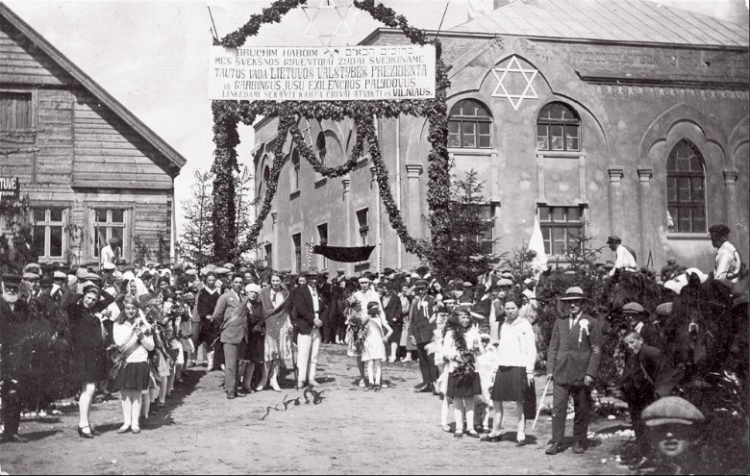
As she points out, 200,000 Lithuanian Jews were exterminated during the German occupation, representing 95 percent of the community’s pre-war population. “This was the highest percentage in any European nation under Nazi occupation.”
Her suspicion aroused, Foti continued her research. Sifting through her late mother’s materials, she found a yellowed booklet published in 1933 brimming with antisemitic rhetoric. “What was this booklet doing in my mother’s archives? How many Lithuanians held these views?”
When she looked at the front cover again, she found that its author had been none other than Noreika. “I dropped the pamphlet in a confusion of alarm and disgust. I did not want a grandfather who could have authored such a poisonous tract.”
As she dove more deeply into her mother’s archive, she found further incriminating material about him. In 1941, when he served the Germans as chief of the Siauliai district, he ordered all Jews into ghettos. “I could not believe what I was reading.”
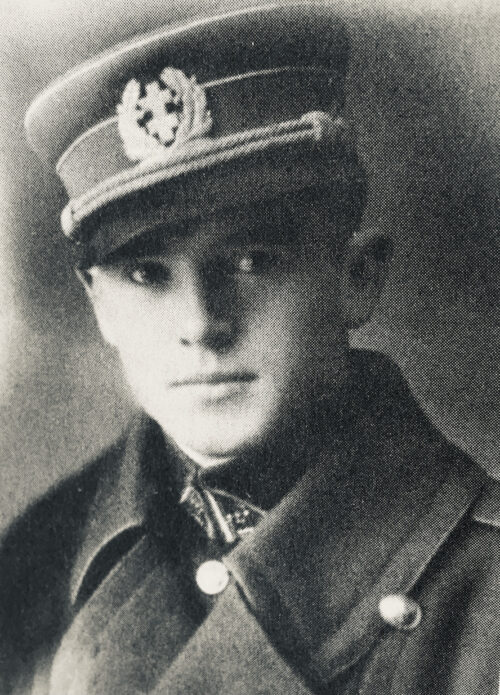
Noreika was also responsible for the murder of the 1,800 Jewish residents of Plunge, who comprised 43 percent of its population. “Plunge was the first massacre of Jews in a Lithuanian town of that size in which the entire Jewish population was killed,” she says.
Only six Jews, sheltered by their Lithuanian neighbors, survived, she goes on to say.
Sickened by this accumulation of evidence, she wept, realizing that these incontrovertible facts were a “hideous stain” on her family’s history.
Growing up in Marquette Park, she had heard countless tales about Lithuanians who had been deported to Siberia by the Soviet Union, but nothing whatsoever about the Holocaust. As she puts it, “In my family, and in my classes at the Lithuanian school, Jews were portrayed as Communist spies, the enemies who had denounced Lithuanians to the Russian soldiers who sent them to Siberia to die. I reasoned: This was probably my grandfather’s thinking , too, at the time.”
Describing Norieka as a “desk murderer,” she reproduces a proclamation he issued shortly after Germany occupied Lithuania in the summer of 1941: Jews were required to wear the Star of David on their left chest. Jewish properties would be expropriated. Jews could not employ “people of other nationalities to work for them.”
Attempting to digest the enormity of it all, Foti concedes that her grandfather signed documents consigning Jews to ghettos, from which they were dispatched to their deaths. “Lithuanians had figured out how to exterminate Jews with shocking efficiency,” and had “greatly assisted” the Germans in their genocidal campaign to cleanse Lithuania of Jews, she charges.
Noreika’s “later resistance to the Nazis, I thought, paled in comparison,” she notes. “Lithuania had become a cemetery for its Jews.”
So disgusted was she by her grandfather’s dark past that she urged the Lithuanian government to remove a plaque in his honor from a library at the Lithuanian Academy of Sciences.
And in a letter, she urged Lithuanians to acknowledge the painful truth about Nazi collaborators in their ranks.
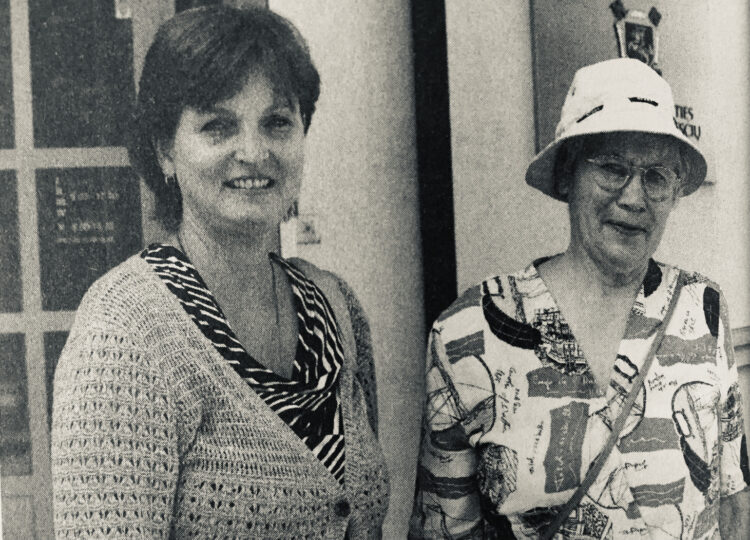
“When my mother, on her deathbed, asked me to write a book about her father, I thought I would be writing about a hero. But once I started researching the Nazi occupation, particularly my grandfather’s role, I realized (he) was no hero.
“As his granddaughter, I have decided to love him because he is still my grandfather. But I hate his sins, and I am willing to bear witness to them in their full horror so that others understand that his actions were wrong. Just because Lithuanians were victimized by the Russians did not give Lithuanians the right to victimize Jews.”
Foti’s cri de coeur leaves a profound impression. She could easily have bought into the fairy tale about Noreika’s heroism as a Lithuanian patriot and conveniently ignored his role as a Nazi collaborator. But instead she has faced the bitter truth about him, regardless of the consequences in her community.
